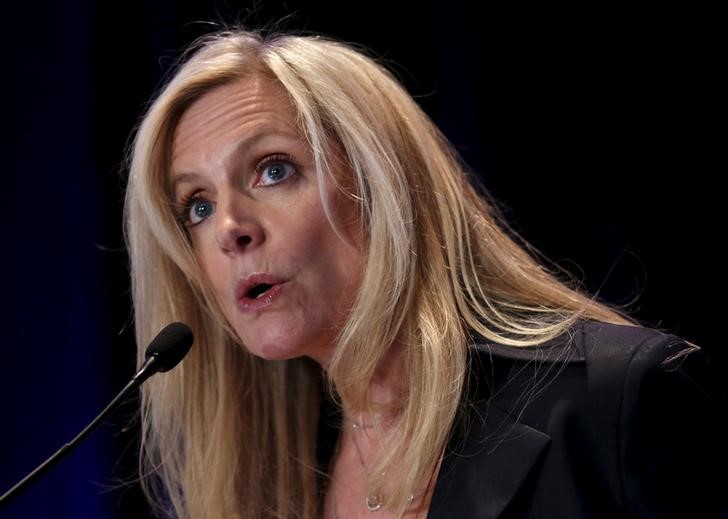By Jason Lange
WASHINGTON (Reuters) - A leading Federal Reserve proponent of low interest rates said on Tuesday the U.S. central bank might hike rates more aggressively if deficit spending under the Trump administration produced a quick economic boost.
"If fiscal policy changes lead to a more rapid elimination of slack, policy adjustment would, all else being equal, likely be more rapid," Fed Governor Lael Brainard said at an event hosted by the Brookings Institution.
Brainard, who was a senior U.S. Treasury official in the Obama administration, has urged a cautious approach to raising rates since joining the Fed's Board of Governors in 2014.
On Tuesday she joined the growing chorus of policymakers at the Fed warning that a sustained widening of the budget deficit could fuel inflation with the U.S. economy already near full strength.
"Full employment is within reach and could prove sustainable with the right policy mix," she said, adding that the Fed's "gradual approach" to raising rates could change depending on future fiscal policies.
After keeping rates near zero for seven years to help the economy recover from the 2007-2009 recession, the Fed pushed through one rate increase in 2015 and another in 2016. Central bank policymakers project three hikes as likely this year.
U.S. President-elect Donald Trump, who takes office on Friday, has made the economic outlook more uncertain, however, with pledges to boost spending on the U.S. military and the country's infrastructure.
A range of Fed policymakers has warned that wider fiscal deficits could cause the economy to overheat, requiring more aggressive rate hikes and possibly spurring another recession.
At the same time, New York Fed President William Dudley on Tuesday echoed the view policymakers have also made that more business-friendly government regulatory policies could help make businesses and workers more productive.

Similarly, Brainard said fiscal changes that helped the U.S. workforce become more efficient would help the economy grow more quickly in the future, helping to keep future deficits under control.